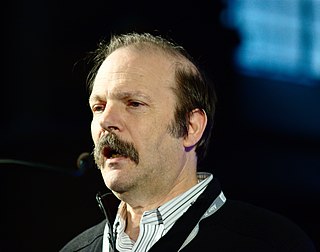A Quote by James A. Michener
. . . Luddites were those frenzied traditionalists of the early 19th century who toured [England] wrecking new weaving machines on the theory that if they were destroyed . . . old jobs and old ways of life could be preserved . . . At certain times in his life each man is tempted to become a Luddite, for there is always something he would like to go back to. But to be against all change-against change in the abstract-is folly.
Related Quotes
Everybody has certain things they wish they hadn't done in life. They wish they hadn't kicked their dog when they were ten or something. There are many things you can go back and have regrets about. I don't like doing that. But by the same token I do agree that when you get to a certain stage in life, you change. And you should change.
Growing up as a black kid with a white father who loves you, who affirms you, who was part of your life is fundamentally different than what black people in my family were subjected to in the 19th century or the 18th century. But unfortunately, it doesn't change the old racial order. I think we need to let the old racial order just stay where it is and not seek to improve upon it. Not try to create more racial categories, because all that does is it makes a race stick around longer.
When a big change occurs in your life it forces you to change direction. Sometimes the new path may not be easy, but you can be absolutely certain that there is magnificence for you on the new path. You can be absolutely certain that the new path contains things that you could not have experienced otherwise.
When we look back at a negative event that occurred in the past, we often see how in fact it transformed our life. We see how that event directed us toward a life that we would not change for anything.
There seems to be something in the zeitgeist, and maybe it's a function of - I'm no analyst, nor am I a psychologist - when you look at things and say, What if I could go back and change things? I think we live in a world right now where people are asking those questions a lot. What if we could go back and change what we did? How would we change the way we handled things in the Middle East, and how would we change things with the banking industry, and how would we change economic and educational issues?
This is a man with an old face, always old... There was pathos, in his face, and in his eyes. The early weariness; and sometimes tears in his eyes, Which he let slip unconsciously on his cheek, Or brushed away with an unconcerned hand. There were tears for human suffering, or for a glance Into the vast futility of life, Which he had seen from the first, being old When he was born.
The story of our band is that we were this relentless touring band in those early years. We were leaving day jobs and going off on the road and having fun and seeing the country for the first time. We were playing Chinese restaurants and basements and record stores and houses. We were crashing on floors and it was all new and exciting. It was like a vacation. It didn't feel like work. I couldn't wait to go on tour back then. I would be sitting at my day job or my apartment, just itching to go. There were so many adventures that were about to happen.
Any fool can destroy trees. They cannot run away; and if they could, they would still be destroyed,-chased and hunted down as long as fun or a dollar could be got out of their bark hides, branching horns, or magnificent bole backbones. Few that fell trees plant them; nor would planting avail much towards getting back anything like the noble primeval forests. During a man's life only saplings can be grown, in the place of the old trees-tens of centuries old-that have been destroyed.
I was really interested in 20th century communalism and alternative communities, the boom of communes in the 60s and 70s. That led me back to the 19th century. I was shocked to find what I would describe as far more utopian ideas in the 19th century than in the 20th century. Not only were the ideas so extreme, but surprising people were adopting them.
He looked very old. He looked, James thought, getting his head now against the Lighthouse, now against the waste of waters running away into the open, like some old stone lying on the sand; he looked as if he had become physically what was always at the back of both of their minds-that loneliness which was for both of them the truth about things.
In the old days, people shared music; they didn't care who made it. A song would be owned by a village, and anyone could sing it, change the words, whatever. That is how humans treated music until the late 19th century. Now, with the Internet, we are going back to having tribal attitudes towards music.
Mom used to walk with me for something like two or three miles to get to the day-old bakery. They had those machines where you buy doughnuts, those vending machines with the long johns and doughnuts. We would buy those bagels and pastries because that was our treat. And come back with shopping bags of these sweets, and who knows what was in it? That was what we could afford that could feed that many people.






































